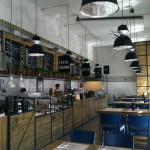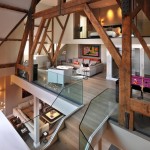
Co-workers Taller 301 + Land and Civilization Compositions design a proposal for the new Central Mosque of Pristina. They try to construct a mosque which is set to be the center of a 'modern' community.
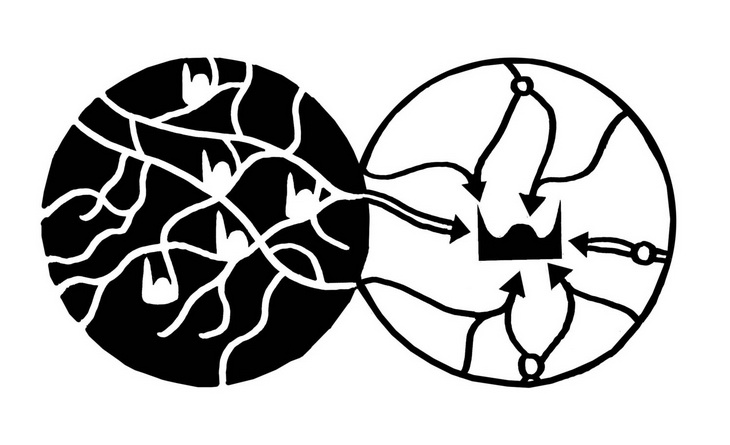
From the Architects:
In Islamic tradition, the circle is the perfect geometrical figure representing, in an abstract way, the perfect God. The circle and the light are the integrative elements of our design. The mosque, being the focal point of the community, creates/nourishes everyday life around it. In addition, the mosque itself should be of a modern quality, like its users and the buildings it sits amongst.

A Community Base
The base that the prayer hall sits upon relates its program to the adjacent uses, binding them all together. Continuing this line of thought, a Hamam is incorporated to our design, the shops are solved in an Arasta typology, both are tying it further to its community and its history. This way, the mosque contributes and gives way to the development of the city.

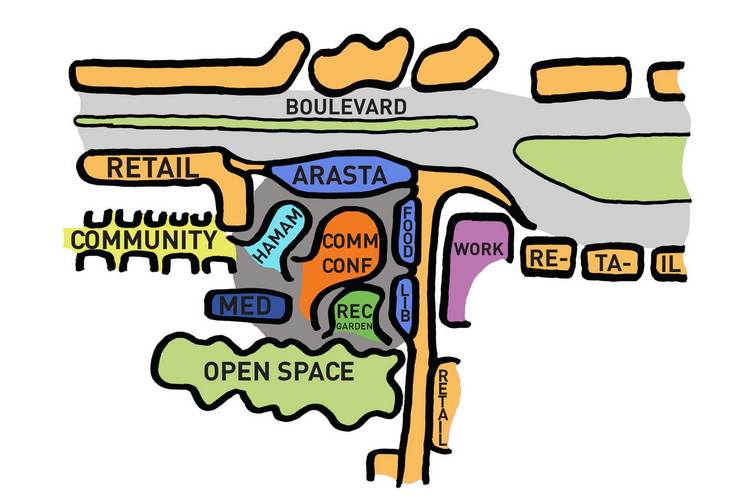
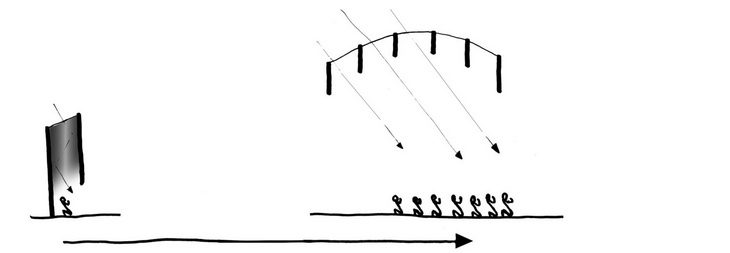
A Fresh Reading of History
The tradition of a dome, a revak, and a courtyard are very strong in Mosque architecture. These traditional forms are kept, but modified to adapt the site/context, and given a more contemporary formal quality.
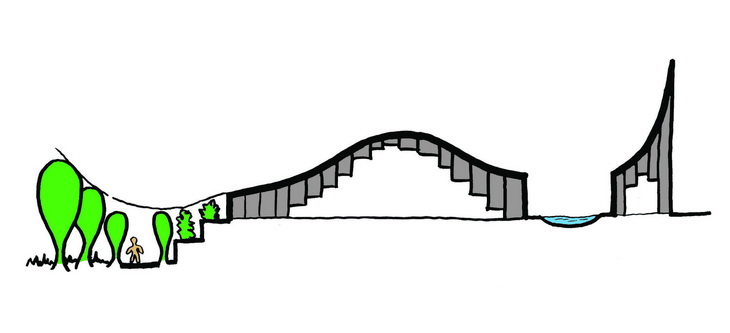

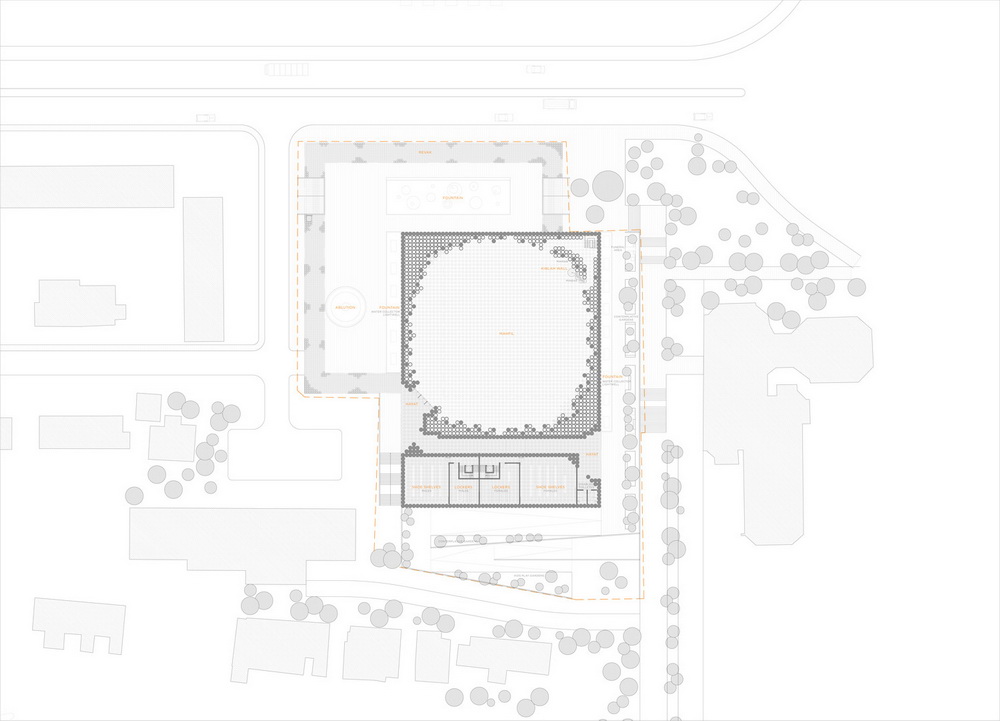
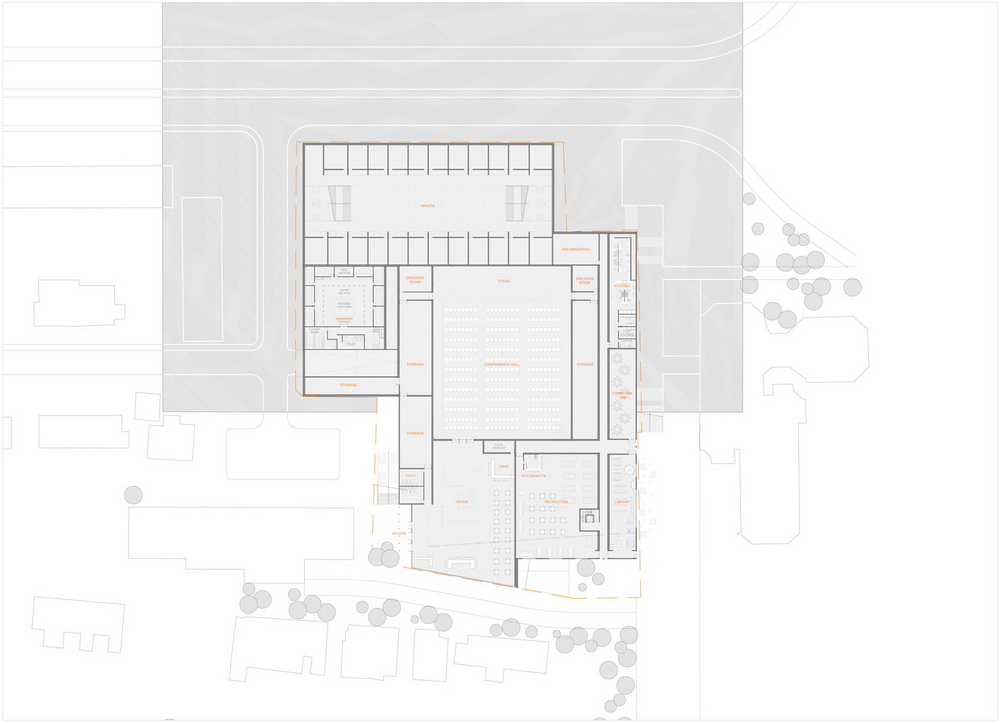
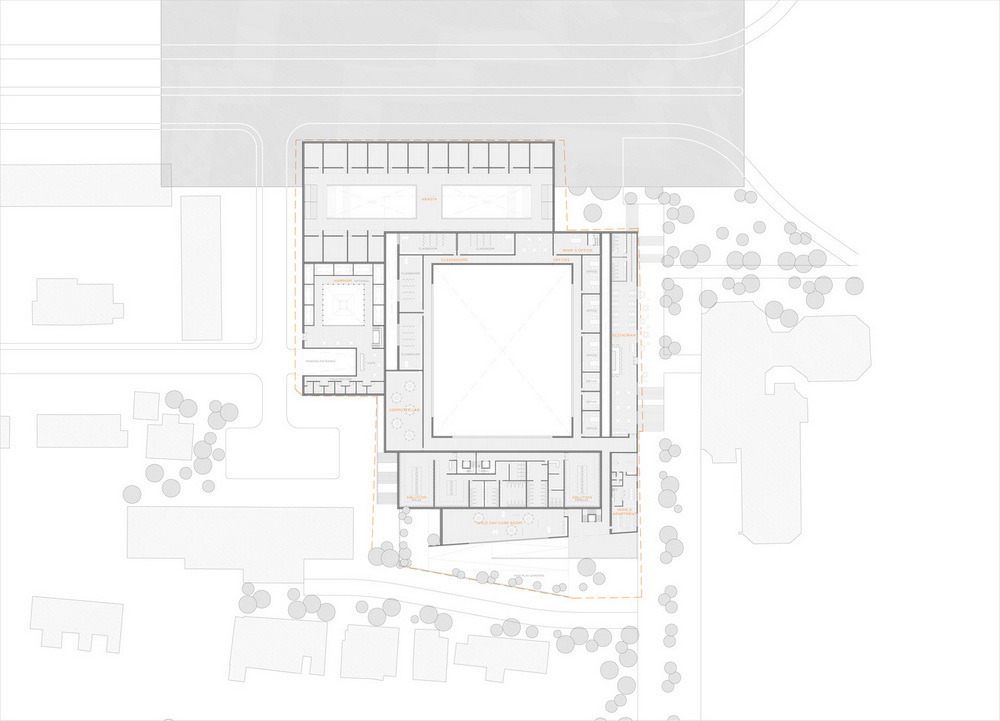
A New Light/Structure
MimarSinan used domes for two reasons: to create the largest possible uninterrupted, unified, homogenous volume and to maximize the light in the space. The design strives to his original intentions but uses modern technology to achieve the forms.
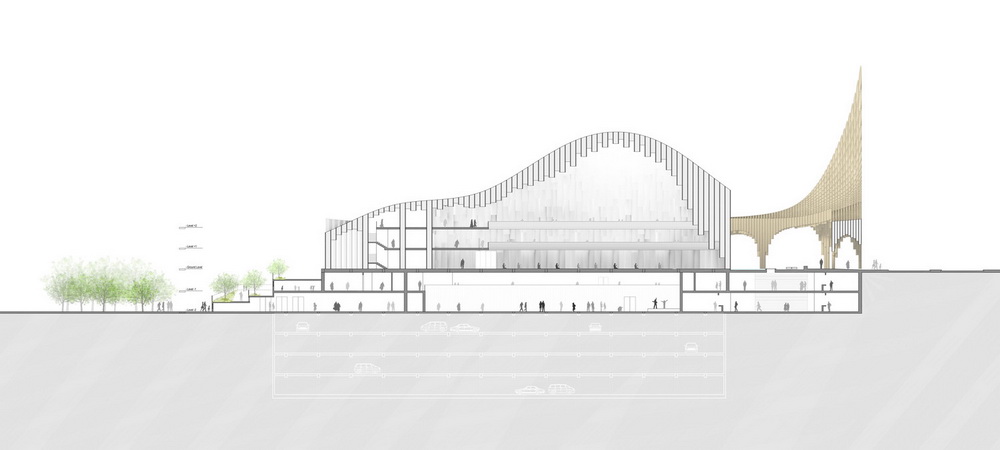
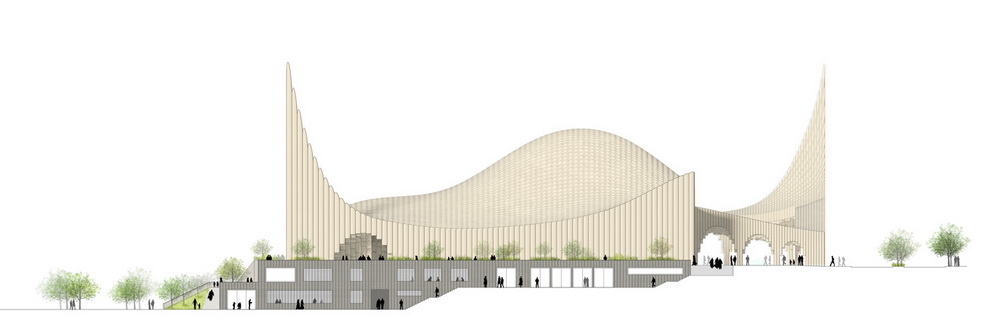

Individual and Collective
Prayer being an individual and a collective activity, at the same time: People communicate with Allah in many ways. The prayer hall responds to this diversity in its design. A gradient of spaces allow for intimate moments of private reflection and for a collective space of grandeur.
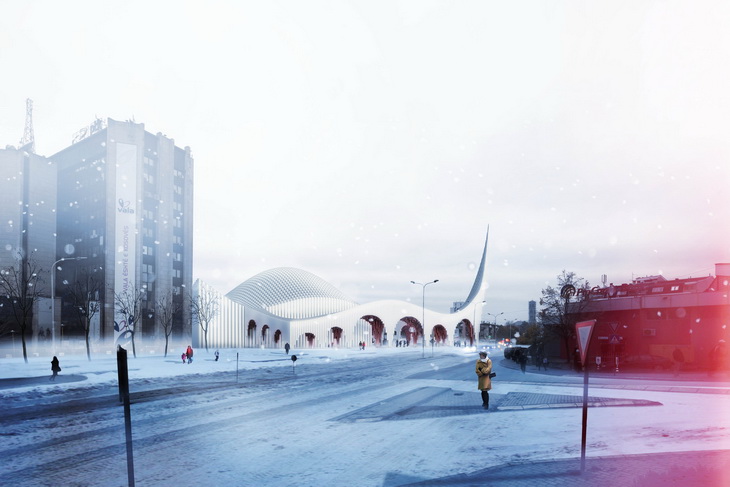
All for One
The site context is diverse and the design relates to each in its own way – formal toward the main street, a magnificent interior prayer hall, and intimate and natural toward the back of the site. The different elements of the Mosque act together to form a collective / holistic gesture.Much like the worshipers themselves – a series of individuals coming together to form a diverse, yet harmonious whole.

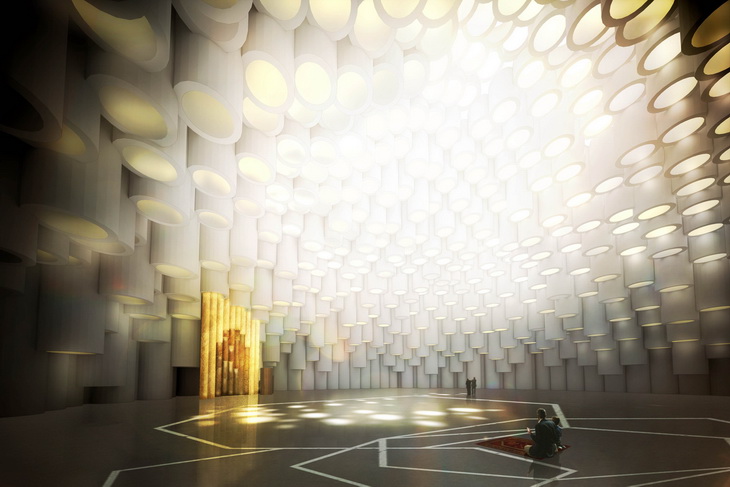
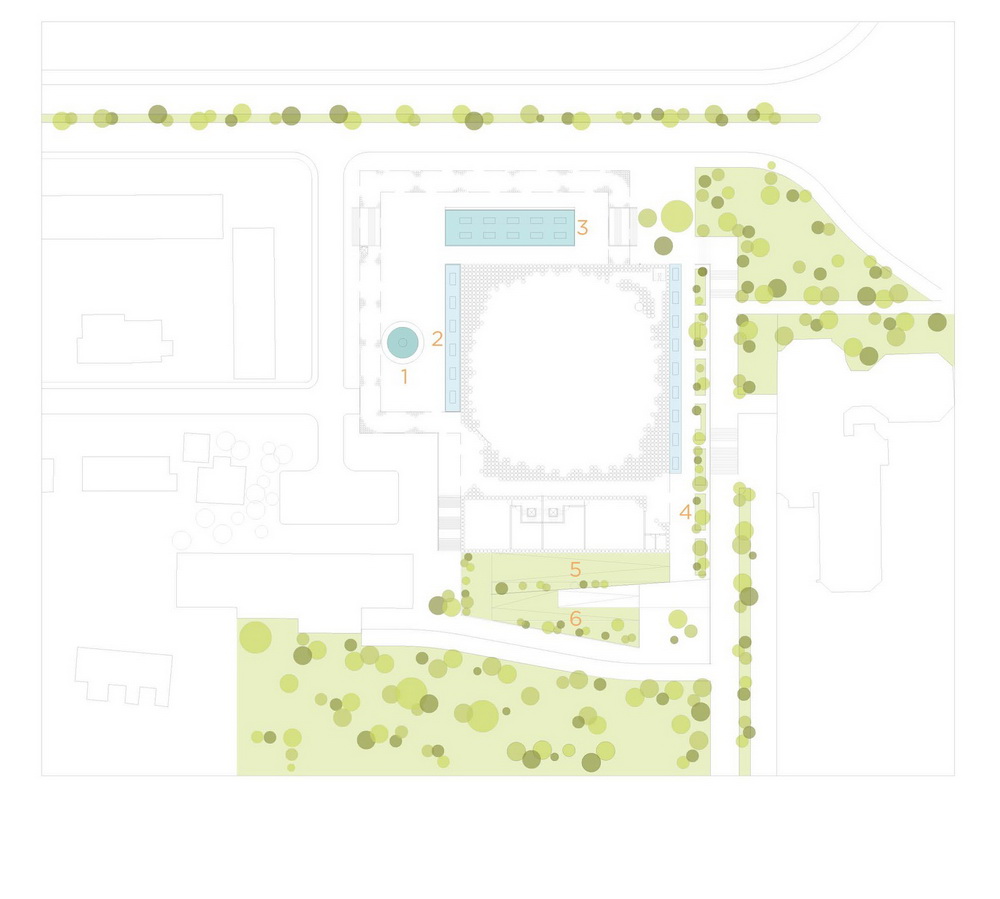
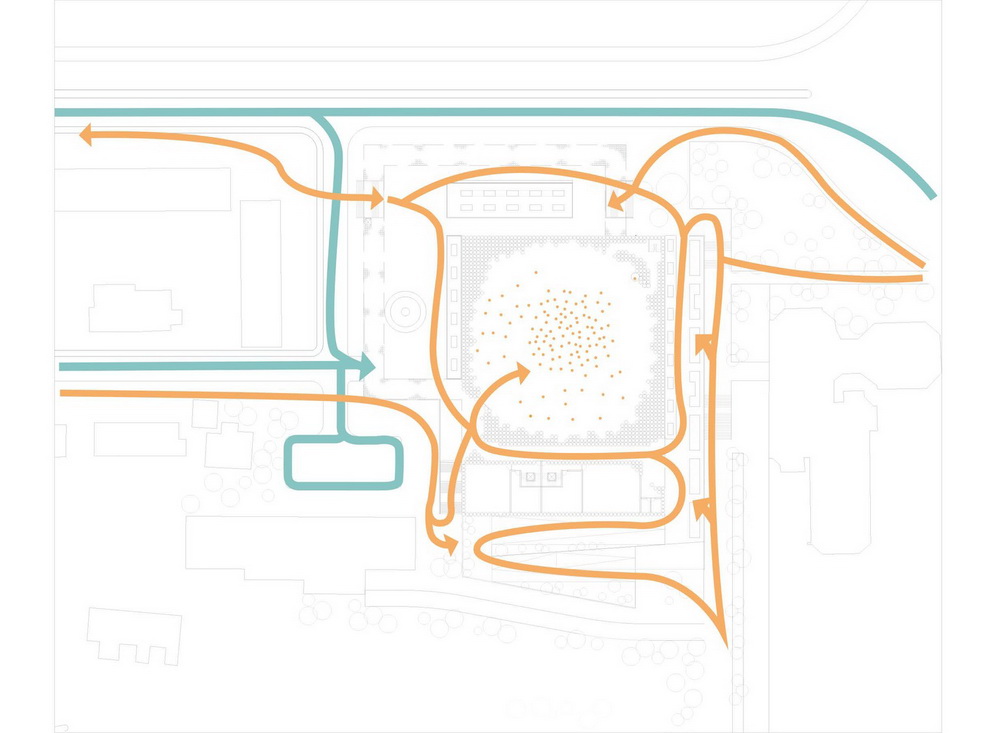

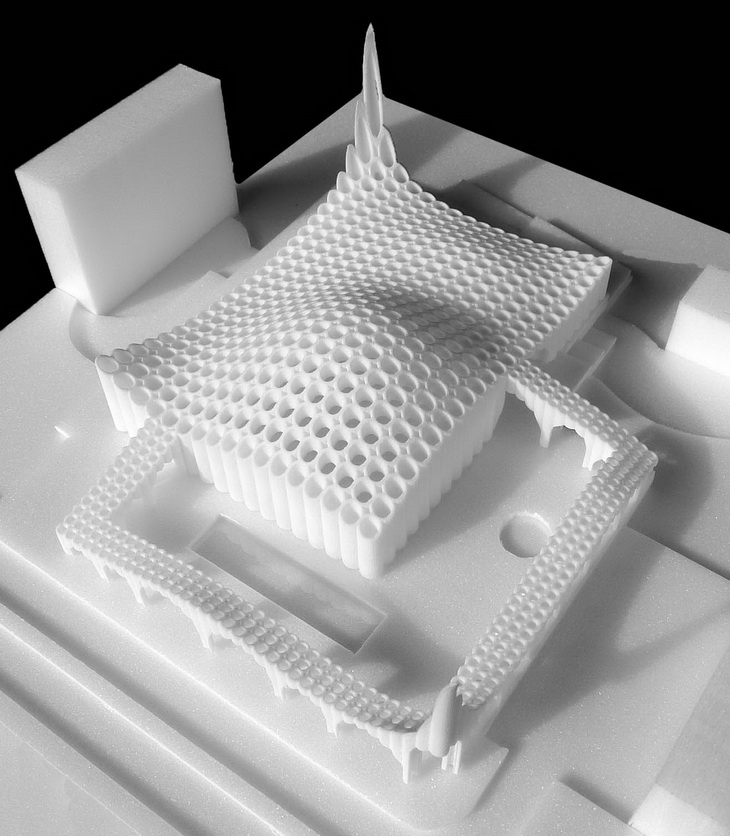

This project will be locally grounded with its array of historical, yet contextual community programs. It will speak to its users by formally providing a range of spaces for relating to God. Simultaneously, it will be a symbol of the world of both Islam and Kosovo’s rich history, laying the groundwork for the future.
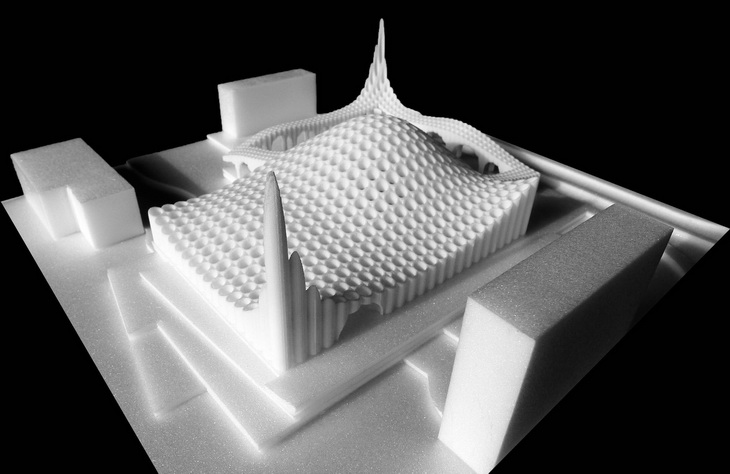
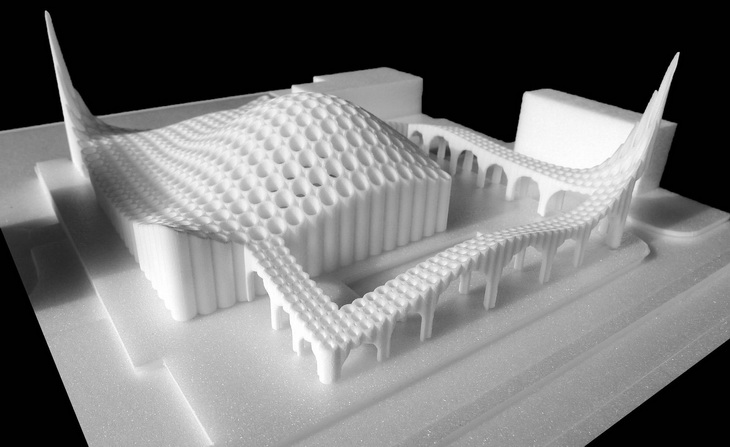
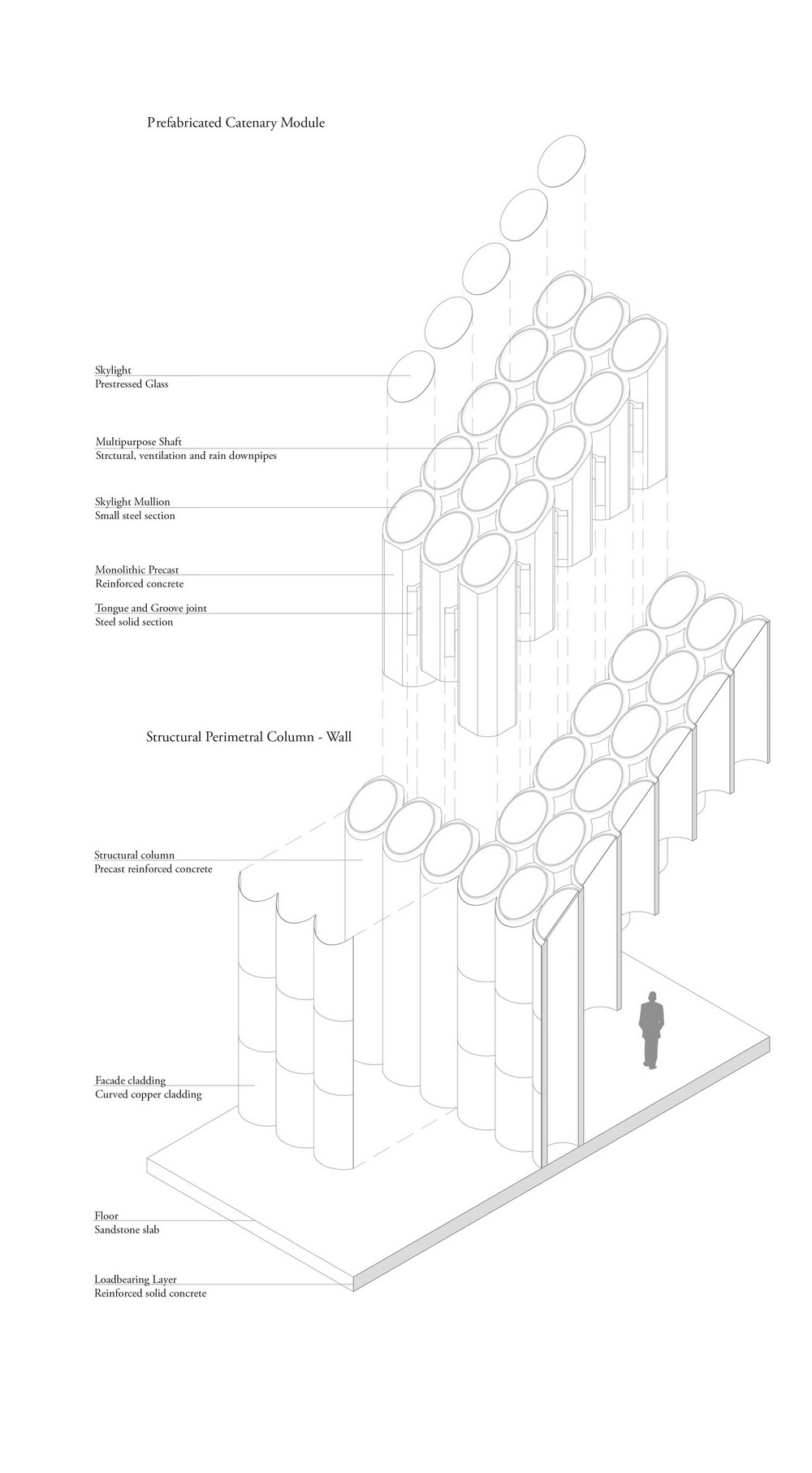
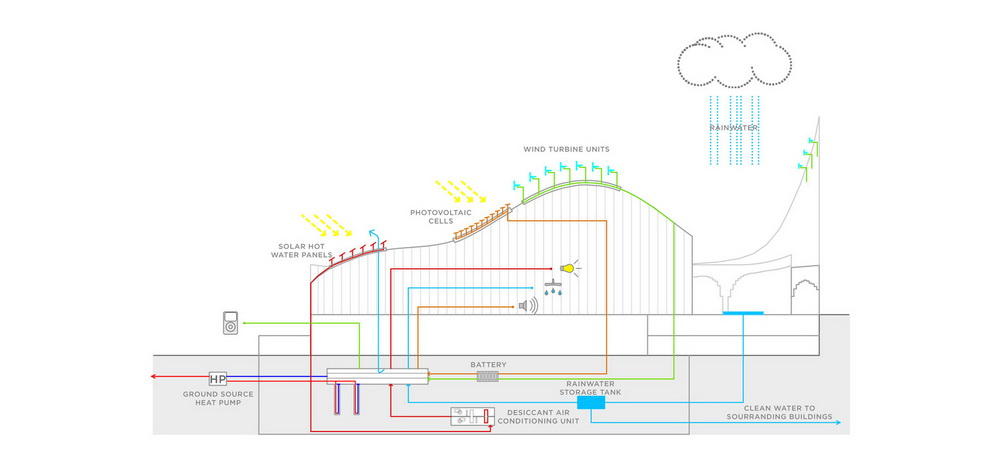
Project: Central Mosque of Pristina
Designed by Taller 301, Land and Civilization Compositions
Team Leaders: Pablo Forero, Julian Restrepo, Jason Hilgefort, Merve Bedir
Team Members: Manuela Mosquera, Jessica Thatcher, Santiago Sánchez, Juan Carlos Cuberos, Joaquín Mosquera, Intern – Camilo Serna
Area: 40 000 m2
Location: Pristina, Kosovo
Website: landandcc.com & taller301.com


